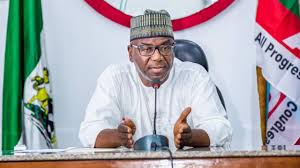
Daniel Otera
Kwara State has taken a significant step in reforming its education sector, especially for its 1,717 public primary schools, by abolishing the long-standing Parents Teachers Association (PTA) levies. In place of these levies, the state government is introducing government-funded annual grants aimed at reducing the financial burden on parents and improving the funding structure of public schools.
With approximately 1.7 million pupils enrolled in primary schools across the state, the move is designed to ensure that financial concerns no longer stand in the way of education access. Before the policy change, parents contributed between ₦1,500 and ₦3,000 per child annually to cover school-related expenses such as teaching materials and maintenance costs a significant challenge for many low-income families.
By abolishing the PTA levies, the government is reallocating resources into direct school grants, providing more consistent and equitable funding across all public institutions. This policy is expected to relieve families of financial pressure, particularly in economically disadvantaged areas, and ensure that education remains accessible to every child.
Governor AbdulRazaq has approved a dedicated annual budget for the 2024 school year, with substantial funds earmarked for educational improvements. Managed by the Kwara State Universal Basic Education Board (SUBEB), the new grants will cover operational costs, enabling schools to function effectively without additional payments from parents.
In addition to scrapping PTA levies, the government has committed to purchasing and distributing free English and Mathematics textbooks to all public primary school pupils. This initiative aims to boost literacy and numeracy levels core priorities in the state’s education reform agenda.
The 2024 UBEC/SUBEB intervention projects will further strengthen the initiative through the construction of new classroom blocks, renovation of existing facilities, and provision of modern learning spaces with offices and toilets. SUBEB Chairman, Prof. Shehu Adaramaja, noted that these interventions reflect the administration’s determination to modernize the public school system and provide conducive learning environments.
To tackle water and sanitation challenges in schools, the government has also allocated funds for drilling solar-powered boreholes, ensuring steady access to clean water. This move not only enhances hygiene and health standards but also aligns with Kwara’s sustainable development goals.
Another critical part of the reform is the renovation of digital literacy centres to integrate technology into classrooms and equip pupils with vital digital skills for the future. This initiative underscores the state’s commitment to preparing learners for the global knowledge economy.
Equally important is the Safe Schools Initiative, designed to secure schools from violence and external threats. By ensuring safer learning environments, the government seeks to protect both students and teachers, allowing uninterrupted academic activities.
Kwara’s sweeping reforms abolishing PTA levies, introducing government grants, improving infrastructure, and promoting digital literacy epresent a transformative shift in public education. The move comes at a time when Nigeria faces a national education crisis, with UNICEF estimating that over 10.5 million children aged 5 to 14 are out of school, the highest figure globally.
By replacing PTA levies with a sustainable, state-funded model, Kwara State is directly addressing the socio-economic barriers that keep children out of school. The policy is expected to boost enrollment and retention rates while promoting equal educational opportunities across all communities.
For many parents in Kwara, this marks a new era one where sending a child to school no longer depends on affordability, but on the shared belief that education is a right, not a privilege.
